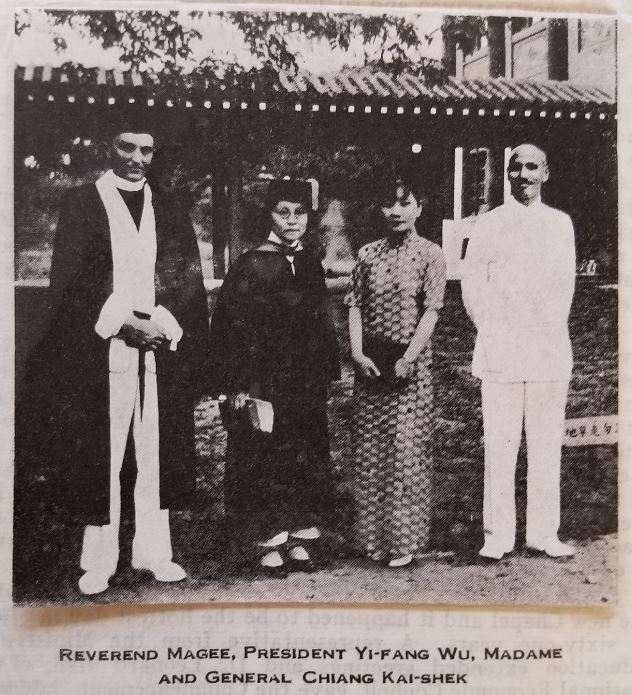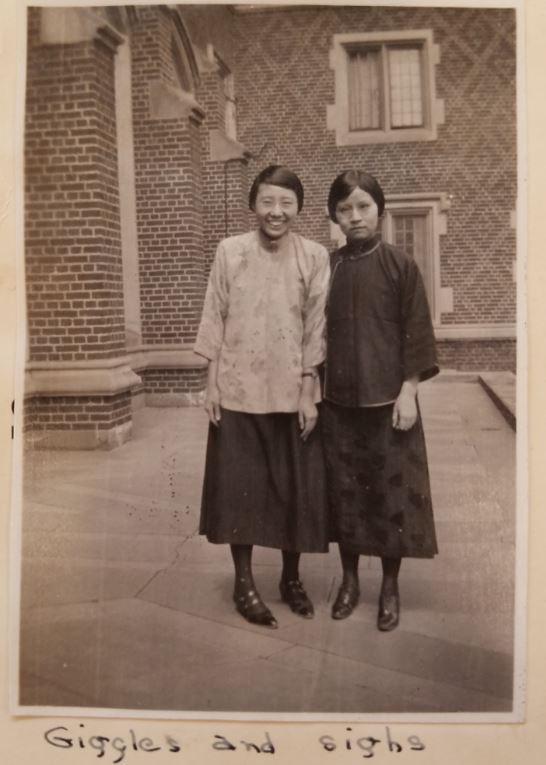Yi-fang Wu: Empowering Chinese Women
China’s history spans thousands of years. Countless dynasties, regimes, emperors, and rulers have influenced and altered the lives of Chinese people. Despite this, the position of women in China always remained that of lower regard. Access to education and literacy for women were scarce, if at all possible. It is because of this that women like Yi-fang Wu, an international student at the University of Michigan, serve as such an inspiration and are emblematic of progress and achievement, not only for women of China, but for women everywhere.
W. Carl Rufus, the head of the Barbour Scholarships after the death of Levi Barbour, was especially fond of Yi-fang; he wrote a special mini-biography about her in his pamphlet, "twenty-Five Years of Barbour Scholarships," and it does well to describe her achievements:
In 1922 Mary E. Woolley, then president of Mount Holyoke College, who had just returned from China, highly recommended a 1919 graduate of Ginling College, Nanking, who was teaching in the Government Higher Normal for Women in Peking and that year was promoted to the head of the English Department. Only three years after her graduation her name was mentioned as a possible future president of her alma mater. She is Miss Yi-fang Wu. At Michigan she specialized in biology, obtained her Ph.D. in 1928, and was elected for president of Ginling before she left America. With several other Barbour Scholars added to the faculty to strengthen the growing institution, Ginling College developed into a center of culture and training whose graduates spread throughout China carrying the spirit of service and sacrifice. Thus “the peoples from which they come” assimilate the benefits made possible by the vision and idealism of the scholarships.1
At the University of Michigan, Yi-fang Wu lived in Martha Cook Domitory and made many lifelong friends, whom she kept in contact with throughout the rest of her life. She was close with her professors and the "faculty wives," and was greatly missed by many of them when she returned to China. Correspondence shows that despite her busy schedule presiding over Ginling College, Yi-fang had time to reflect back on her University days and write letters.
Ginling College was one of only three colleges for women in all of China, and Yi-fang Wu became the first Chinese woman to become a president of any college, a huge accomplishment for women of China.2 It can be of no doubt that Yi-fang Wu inspired countless Chinese women, and women all over the world. Soong Mei-ling, a prominent Chinese politician and wife of General Chiang Kai-shek was present at her inauguration and spoke in honor of her.3
Her accomplishments are too numerous to list in toto. She worked directly with Chiang Kai-shek in developing intersections between government and education and travelled the world to speak on the behalf of Chinese women and the importance of education.4 She was even called to San Francisco in 1945 as part of the Chinese delegation in the drafting of the United Nations charter.5
Throughout Yi-fang's life, she proved the strength, intelligence, and capability of Chinese women. She was a remarkable woman who continues to inspire women all over the world.
1. W. Carl Rufus, "Twenty-Five Years of the Barbour Scholarships," Michigan Alumnus Quarterly Review, Vol. XLIX, No. 11 (December 19, 1942), Bentley Historical Library, University of Michigan.
2. Mrs. Lawrence Thurston and Ruth M. Chester, "Ginling College," (U.S.A.: United Board for Colleges in China, 1955), 70.
3. Ibid, 66.
4. Ibid, 79.
5. Ibid.


